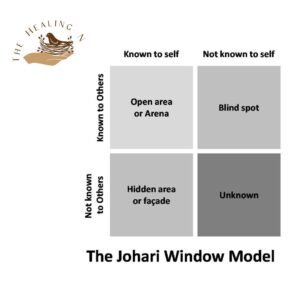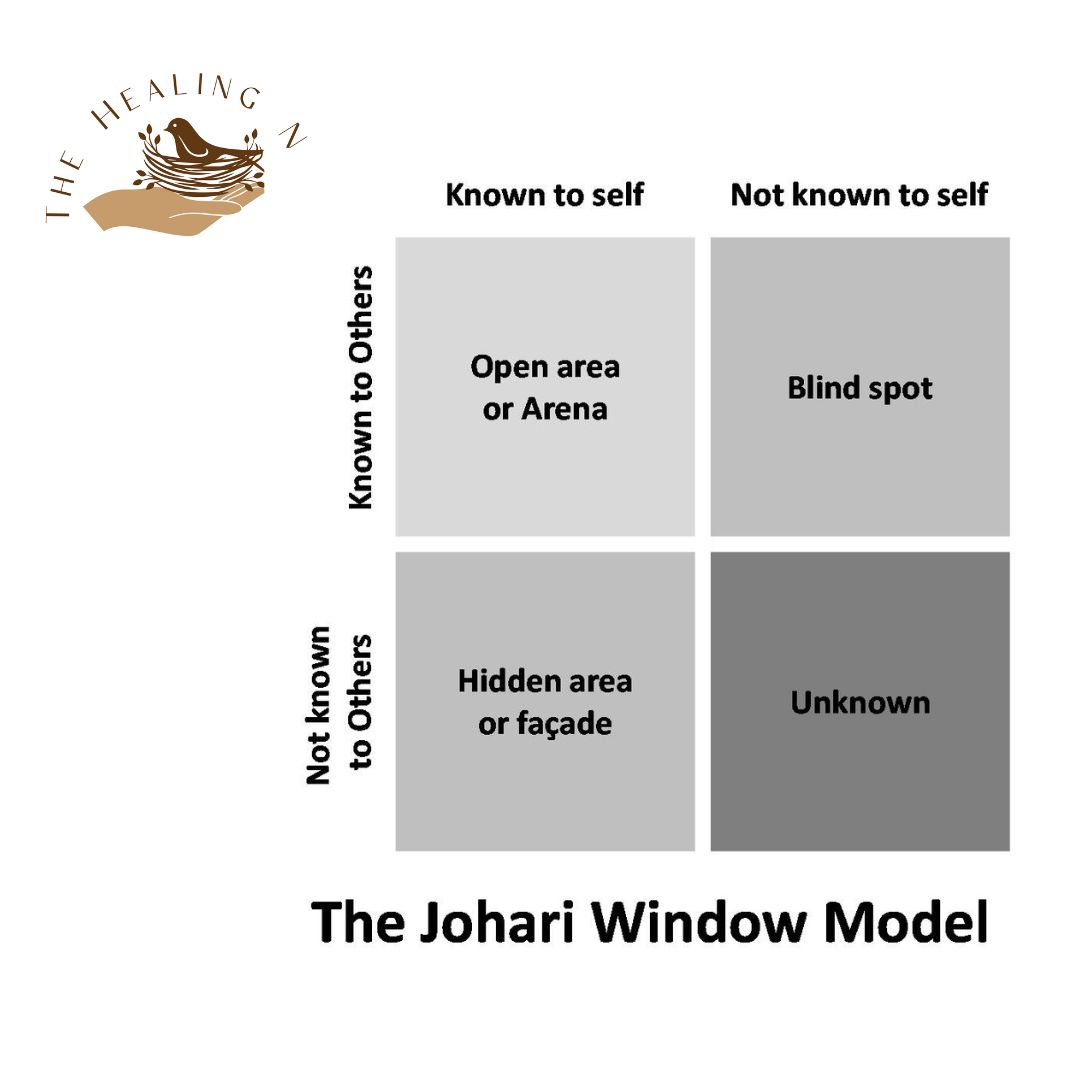A Johari window, created by Joseph Luft and Harry Ingham in 1955, is a psychological tool used for self-awareness, personal development, improving communications and interpersonal relationships. The model provides a simple visual reference for examining your personality, and for improving understanding between individuals.

The Open Area represents the things that you know about yourself and that others know about you. This includes your behavior, knowledge, skills, attitudes, and “public” history.
In the Open pane, start by adding 10-12 things you are aware of about yourself such as adjectives, skills, descriptors. Then ask friends/family/colleagues to circle things they agree with.
Anything that is left encircled can be moved into the Hidden pane.
Then ask them to write things about you in the Blind pane. If there is anything in there you already know, move it to the open pane. Anything that is new to you, should be left there.
In the Unknown pane, you should use the space to reflect on underlying issues or things you are unaware of about yourself. This might be something like “I would like to discover why I am impatient” or “I wonder why I really struggle with deadlines?”
If you prefer a more technical approach, here’s an online Johari Window test https://kevan.org/johari


One Reply to “The Johari Window”